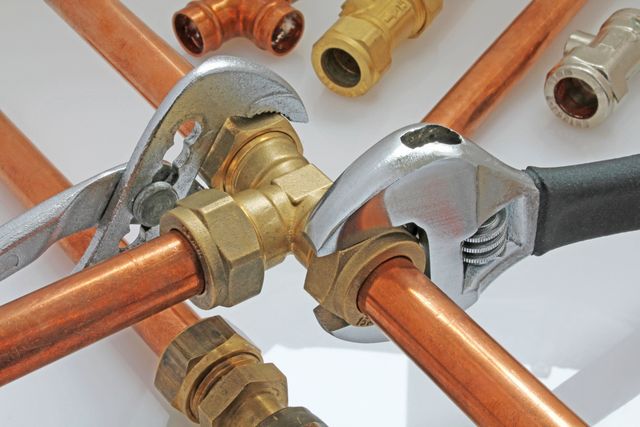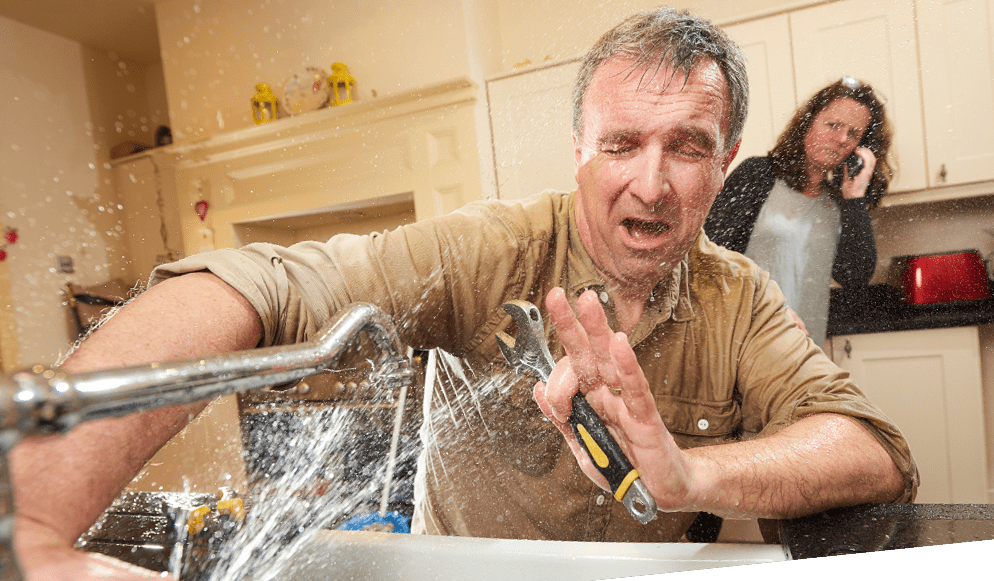Steps to Fix Emergency Plumbing with Temporary Fixes Until Help Arrives
Steps to Fix Emergency Plumbing with Temporary Fixes Until Help Arrives
Blog Article
On this page down the page you can get a bunch of first-rate data when it comes to Plumbing Emergencies: Tips on What To Do Before.

Pipes emergencies can strike at any time, creating anxiety and prospective damages to your home. Whether it's a ruptured pipe, a clogged drainpipe, or a leaky tap, understanding exactly how to manage the circumstance until a specialist plumbing technician arrives can conserve you from further difficulties. This post provides crucial emergency pipes suggestions to assist you minimize damage and restore control throughout a pipes crisis.
Shut off the Water System
The primary step in any plumbing emergency is to shut down the water. For localized issues, such as a dripping tap or commode, turn off the valve near the fixture. In the case of a significant leakage or ruptured pipeline, locate your home's main water shut-off valve and turn it off right away. Recognizing the area of these shutoffs beforehand can save important time during an emergency.
Turn off Your Hot Water Heater
In specific emergency situations, such as a ruptured pipeline, it's a good idea to turn off your water heater. This stops getting too hot or damages to the system when water quits moving. Turn off the power supply to the water heater (electrical or gas) and allow it cool to avoid prospective dangers.
Momentarily Quit a Burst Pipe
A burst pipeline can bring about substantial water damages in minutes. To alleviate the concern:
Call a professional plumbing right away to attend to the trouble completely.
Have an Emergency Plumbing Set
Prepare a standard plumbing emergency kit to deal with minor issues efficiently. Your package needs to consist of:
Having these tools on hand can make a significant difference in your ability to take care of emergencies.
Unclog Drains Safely.
A clogged up drain can be an aggravating and messy concern. Right here's exactly how to tackle it:.
If these approaches do not work, avoid utilizing excessive pressure, as it might worsen the obstruction.
Take Care Of Overflowing Toilets.
An overflowing toilet can trigger prompt mayhem. Right here's what you should do:.
Address Tiny Leaks with Short-lived Repairs.
Tiny leaks can rapidly end up being significant troubles if left untreated. Utilize these temporary repairs until specialist assistance arrives:.
While these repairs aren't long-term, they can help lessen water loss and damages.
Deal With Frozen Piping Very Carefully.
In cooler climates, icy pipes are a typical emergency situation. If you think an icy pipeline:.
Know When to Call a Specialist.
While quick fixes can aid momentarily, particular pipes concerns call for prompt specialist focus. Call a plumbing if:.
Immediately speaking to an expert guarantees the problem is settled properly and prevents more difficulties.
Protect against Further Damage.
Taking quick activity to lessen damage can save you money and time in the future. Right here's how:.
Conclusion.
Pipes emergencies can be frustrating, but with the appropriate understanding and tools, you can take care of the situation properly up until aid shows up. By turning off the water, dealing with tiny leaks, and making use of momentary solutions, you can lessen damages and keep your home safe. Bear in mind, these suggestions are short-lived services; constantly speak with an accredited plumber to deal with the origin of the problem. Preparation and fast thinking are your finest allies in any kind of plumbing emergency.
Expert Tips for Emergency Plumbing Repairs
Plumbing emergencies can be incredibly stressful and inconvenient. Whether it’s a burst pipe, a clogged drain, or a leaky faucet, these common plumbing emergencies need immediate attention to prevent further damage to your home. But before you panic, it’s important to understand the basics of plumbing repairs and the steps you can take to address these emergencies. In this article, we will share some expert tips to help you navigate through these situations and minimize potential water damage.
Identifying Common Plumbing Emergencies
Leaky pipes and faucets Clogged drains and toilets Burst pipes Low water pressure Water heater problems Essential Tools for Plumbing Repairs
Plunger: Useful for unclogging toilets and drains Adjustable wrench: Needed for tightening or loosening nuts and bolts Pipe wrench: Ideal for gripping and turning pipes Tape measure: Necessary for accurate pipe measurements Plumber’s tape: Helps create watertight seals Understanding Emergency Plumbing Services
Emergency plumbing services are designed to provide immediate assistance for unexpected plumbing issues that can cause significant damage to your home, business, or health. These services are typically available 24/7 and are staffed by experienced plumbers who can quickly diagnose and repair a wide range of plumbing problems.
When a plumbing emergency strikes, time is of the essence. Whether it’s a burst pipe flooding your basement or a gas leak posing a serious risk, emergency plumbing services ensure that help is just a phone call away. These professionals are equipped with the tools and expertise to handle any situation, minimizing damage and restoring your plumbing system to proper working order.
What Constitutes a Plumbing Emergency?
Burst pipes or water supply lines: These can cause extensive water damage and need immediate repair to prevent flooding. Gas leaks or suspected gas leaks: Gas leaks are extremely dangerous and require prompt attention to avoid potential explosions or health hazards. Sewer backups or overflows: These can lead to unsanitary conditions and significant property damage. Clogged drains or toilets causing water to overflow: Overflowing water can damage floors, walls, and other structures. Leaks or water damage causing structural damage: Persistent leaks can weaken the structural integrity of your home or business. No hot water or heating: A lack of hot water can be more than an inconvenience, especially in colder months. Common Causes of Plumbing Emergencies
Aging or corroded pipes: Over time, pipes can deteriorate, leading to leaks or bursts. Improperly installed or maintained plumbing fixtures: Faulty installations or lack of maintenance can result in unexpected failures. Tree roots or other debris infiltrating your sewer line: Roots can grow into pipes, causing blockages and backups. Frozen pipes or water supply lines: In colder climates, pipes can freeze and burst, leading to significant water damage. High water pressure or sudden changes in water pressure: Excessive pressure can strain pipes and fixtures, causing them to fail. Natural disasters such as floods or earthquakes: These events can disrupt your plumbing system and cause severe damage. Steps to Minimize Water Damage
Locate the water shut-off valve: Knowing where the valve is can help you quickly cut off the water supply to the affected area. Turn off the water heater: If there’s a risk of water coming into contact with the heating element, make sure to turn off the water heater to avoid potential accidents. Open faucets and drain pipes: By opening faucets and drain pipes, you can relieve pressure and empty any standing water. Collect and contain water: Use towels, buckets, or bins to collect water and prevent it from spreading to other areas of your home. https://leecountyplumbingandwellservice.com/expert-tips-for-emergency-plumbing-repairs/

I was made aware of that editorial on What to Do While Waiting for an Emergency Plumber from someone on our other domain. So long as you appreciated our blog entry kindly be sure to pass it around. We thank you for your readership.
Instant Quote Report this page